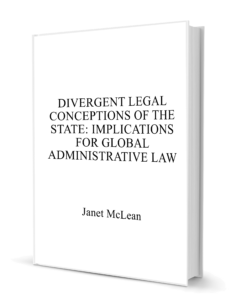
Janet McLean
Read PDFRead PDFA central premise of this paper is that the success of the various strategies for the development of transnational systems of governance will depend on how well they integrate or assimilate these differing domestic and international legal archetypes of the state. The paper begins by suggesting different ways in which the competing conceptions have been, and can be, integrated and assimilated. British colonial law’s successful integration of the international and domestic law sovereign in the office of the Crown at the point of acquiring new territory is an important historical example and is considered first. The prevalence of colonial law at earlier times of transnational government also has tended to obscure the significance of the fundamental differences between domestic and international legal conceptions as they sometimes present themselves today. A contemporary technique that has further masked these differences is dualism. The limitations of this technique, given the expansion of international rulemaking, are briefly considered. The paper proceeds from the premise that the different techniques by which spaces for global governance can be and have been created are important for, but distinct from, an evaluation of the capacity for a global administrative law to operate within those spaces so created. The sites of global governance are not necessarily the sites of global administrative law. Yet how the global space is created may have an impact on which of the techniques and functions of administrative law are likely to be effective.


